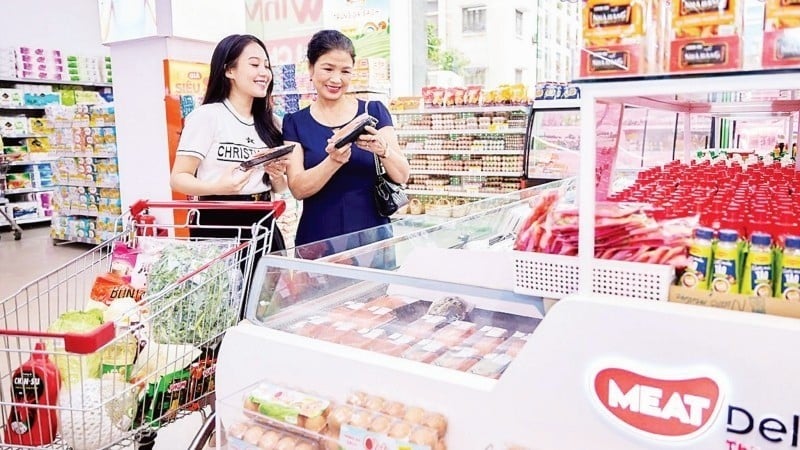
Customers shop at WinMart+ store system.
To meet the high growth requirements of the economy , the requirement for price management is to always ensure two goals: Supporting production, economic growth and controlling the consumer price index according to the targets assigned by the National Assembly.
There is still much room to control inflation.
The Government 's report on the results of the implementation of the socio-economic development plan for 2025, expected for 2026, shows that the outstanding results of 2025 are that the macro-economy is maintained, major balances are ensured, economic growth is high, and inflation is controlled.
The economy has made a comprehensive breakthrough with a number of basic indicators: GDP growth for the whole year is expected to reach more than 8%, GDP scale reaches about 510 billion USD, ranking 32nd in the world . This result is a milestone for Vietnam to become an upper middle-income country when the average income per capita reaches about 5,000 USD/person/year; the consumer price index (CPI) increases below 4%, lower than the set target. Thus, this is the 11th consecutive year that inflation has been controlled below 4% in the context of the economy returning to a high growth trajectory.
Explaining why Vietnam's inflation remains stable while fiscal and monetary policies are loosened to support growth, Dr. Can Van Luc, chief economist of the Bank for Investment and Development of Vietnam, said the main reason is the slowing money turnover. By the end of September 2025, money supply is estimated to increase by 8.5%, of which credit increased by 13.4% compared to the beginning of the year, but money turnover is only at 0.65 times, significantly lower than the normal level of money turnover of 0.9 to 1 times.
This means that money is circulating a lot but not circulating strongly, there are still bottlenecks in many stages such as public investment, capital circulation in the private economic sector, so inflation does not rise. Another important factor supporting the goal of controlling inflation since the beginning of the year is that the prices of essential goods such as food, foodstuffs, and gasoline are tightly controlled, combined with ensuring abundant supply.
According to the General Statistics Office, in the first nine months of 2025, there were eight months of CPI increase and one month of decrease compared to the previous month. Of which, the CPI in January increased the most with an increase of 0.98% and in March, the CPI turned to decrease by 0.03%. On average, in the first nine months of 2025, core inflation increased by 3.19% over the same period, lower than the average increase of 3.27% of the general CPI, due to the price increase of commodity groups affecting the CPI such as food, foodstuff; electricity; medical services; education, which are excluded from the list of commodities for calculating core inflation.
Ms. Nguyen Thu Oanh, Head of the Service and Price Statistics Department (General Statistics Office) said that the positive results in controlling inflation were achieved thanks to the ministries, branches and localities resolutely and synchronously implementing price management solutions, ensuring the balance of supply and demand of goods, especially essential goods according to the direction of the Government. Along with that, market support policies continued to be implemented such as reducing 2% of value added tax; continuing to reduce fees and charges; reducing import tax for many groups of goods, etc.
Localities have also actively promoted industrial promotion programs, supported small and medium enterprises, boosted production and business, and improved the investment environment. With the results of socio-economic development in the past nine months, Ms. Nguyen Thu Oanh commented that there is still much room to control inflation for the whole year below the target assigned by the National Assembly.
Do not be subjective in management
In the third quarter of 2025, research organizations simultaneously adjusted their forecasts for Vietnam's economic growth. The Asian Development Bank (ADB) in its Asian Development Outlook Report adjusted Vietnam's GDP growth forecast for 2025 to 6.7% compared to the forecast of 6.6% issued in April 2025; inflation was adjusted down to 3.9% compared to 4.0%. HSBC Bank raised its forecast for Vietnam's growth from 6.7% to 7.9% thanks to impressive growth results in the first three quarters of the year and slightly raised its inflation forecast to 3.3% instead of the previous forecast of 3.2%, with the assessment that inflation is still under control...
According to Dr. Can Van Luc, inflation is not a matter of concern in 2025. The average CPI for the whole year of 2025 is forecast at 3.8 to 4%, lower than the National Assembly's target, thanks to the combined impact of factors supporting inflation control; ensuring the supply of essential goods and services in the country.
Vietnam's economy had a breakthrough growth in the third quarter of 2025 with the recovery of both supply and demand drivers, but inflation only increased by 3.27% over the same period, much lower than the target of controlling inflation for the whole year at 4 to 4.5% assigned by the National Assembly.
In addition, the State Bank of Vietnam’s stable exchange rate and basic interest rate management and increasingly better coordination between fiscal and monetary policies are also factors supporting inflation control. However, inflationary pressure may increase more strongly in the last quarter of the year due to both cost-push and demand-pull factors.
Specifically, the cost-push factor is that the price of imported goods will be higher at the end of the year due to the US tariff policy, the increase in prices of goods managed by the State and the demand-pull factor is credit growth to meet the capital needs for higher growth. In addition, in the management work, it is necessary to ensure adequate supply of essential goods and services, especially during the period affected by storms, floods and natural disasters to contribute to price stability and inflation control.
According to economic experts, inflation is still under control but we cannot be subjective in management because from now until the end of the year, the price index of food and eating out may continue to increase due to the impact of floods in some localities, especially green vegetables, processed foods, etc.
Along with that, the pressure to disburse public investment capital is increasing to achieve the target of disbursing 100% of the allocated capital by 2025, up to nearly 1 quadrillion VND. The implementation of the market price roadmap for public services managed by the State also needs to continue to be carefully calculated, in accordance with the actual developments of the CPI growth rate, ensuring harmony between development goals and social stability.
Professor, Dr. Hoang Van Cuong, a member of the 15th National Assembly, said that the regulatory agencies need to pay attention to the issue of expected inflation that may arise because in reality, the prices of speculative assets have increased. When businesses and suppliers predict future cost increases, they will increase the selling prices of products and goods, affecting the general price level.
nhandan.vn
Source: https://baolaocai.vn/kiem-soat-tot-lam-phat-ho-tro-muc-tieu-tang-truong-post885781.html





![[Photo] Prime Minister Pham Minh Chinh chairs the second meeting of the Steering Committee on private economic development.](https://vphoto.vietnam.vn/thumb/1200x675/vietnam/resource/IMAGE/2025/11/01/1762006716873_dsc-9145-jpg.webp)


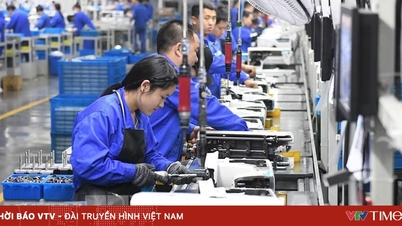

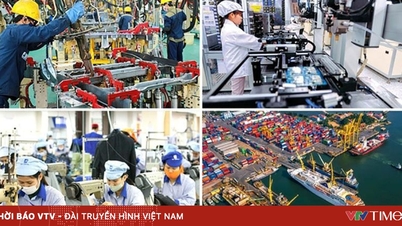
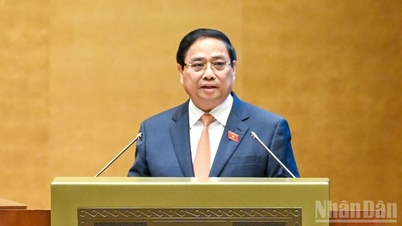

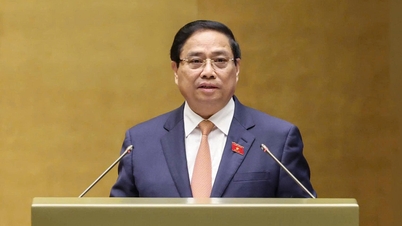

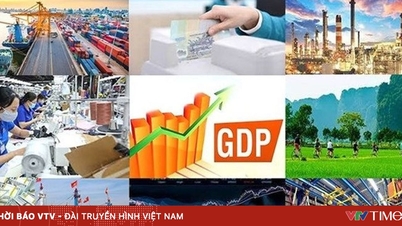
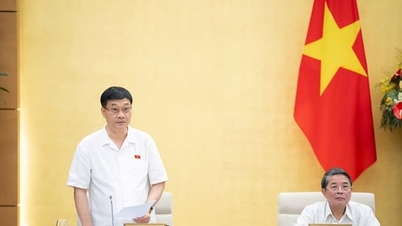

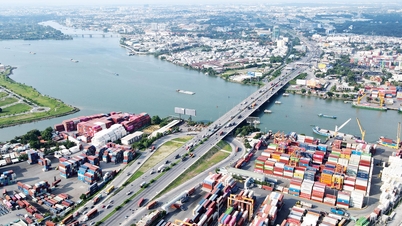





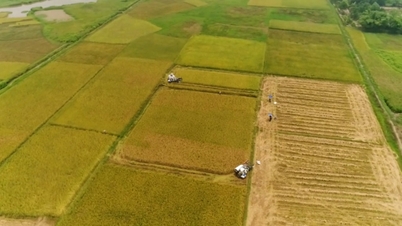












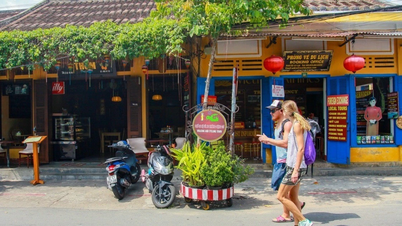
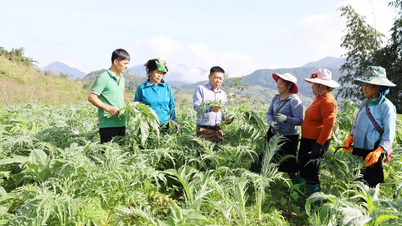









































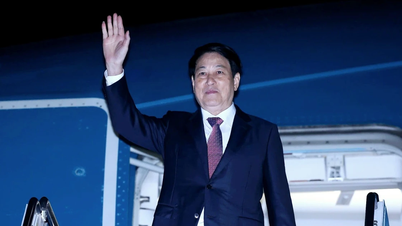

































Comment (0)